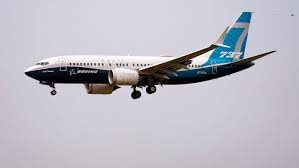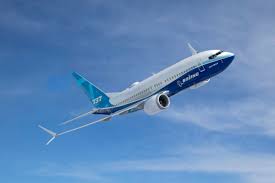Boeing Technical Pilot Acquitted on Criminal Charges from 737 Max Safety Scandal

The Department of Justice criminal prosecution of Mark Forkner, chief technical pilot at Boeing responsible for the 737 Max, ended in quick acquittal. DOJ prosecutors suffered an embarrassing loss in an attempt to hold Forkner responsible for misleading FAA officials on the training level required for pilots flying the 737 MAX.
DOJ’s loss ends its prosecutions stemming from the Boeing 737 Max safety scandal. In yet another lesson for DOJ prosecutors, the jury’s rejection of the prosecution reflected a fundamental failure in DOJ’s targeting a relatively mid-level employee while allowing senior officers and board members to escape accountability.
DOJ has been criticized for its relatively light touch in prosecuting Boeing as an organization and failing to pursue charges against higher-level officials. Boeing paid a criminal fine of $2.5 billion to settle fraud charges. The jury’s 90 minute deliberations resulting in an acquittal reflects a rejection of DOJ’s decision and overall tactics.

Juries often bring justice to deliberations and verdicts. In the Boeing case, the jurors saw through the government’s lack of fairness – Boeing officials were not charged – only a chief technical pilot was held accountable. The fundamental flaw in this approach is that even assuming that Forkner engaged in misconduct, his actions or failures to act occurred in the context of an organization with colleagues, supervisors and other senior officials ultimately responsible for Boeing’s actions.
Forkner was charged with four counts of wire fraud. He was accused specifically of misleading the FAA on the level of training pilots would be required to take before flying the 737 MAX. The FAA assigned a specific training level – A through E, with A being the least intensive and costly and Level E being the most intensive and costly. Level B required computer-based training and Level D required flight-simulator training, which required costly equipment and flight simulator training.
Based on test flights, Boeing installed a Maneuvering Characteristics Augmentation System to prevent the 737 MAX nose from pitching down. The MCAS system adjusted the horizontal stabilizer located near the airplane’s tail. As alleged by the government, Forkner knew that Boeing’s objective was to receive a training determination no greater than Level B in order to reduce the costs for pilot training.
On October 29, 2018, the Lion Air Flight 610 crashed after takeoff into the Java Sea killing all 189 passengers and crew. Following the crash, the FAA learned that MCAS activated during the flight and may have caused the crash. The FAA learned for the first time about the change to the MCAS, including the information Forkner allegedly concealed from the FAA.

Five months later, on March 10, 2019, Ethiopian Airlines Flight 302 crashed shortly after takeoff, killing all 157 passengers and crew on board. The FAA learned that MCAS was activated during the flight. Three days later, Boeing’s 737 MAX was grounded.
Forkner’s trial lasted only two days. Prosecutors relied on chat messages and emails to prove that Forkner knowingly lied to the FAA. Forkner’s attorneys argued that the messages were taken out of context. In a significant claim, Forkneer’s attorneys argued that Forker was kept out of the loop by Boeing executives and engineers.
Forkner’s defense attorney argued to the jury, “This was a massive corporate failure, and Boeing simply needed someone to pin it on.”
The jury agreed.
















1 Response
[…] Mike Volkov said of the Forkner verdict, “Juries often bring justice to deliberations and verdicts. In the Boeing case, the jurors saw through the government’s lack of fairness – Boeing officials were not charged – only a chief technical pilot was held accountable. The fundamental flaw in this approach is that even assuming that Forkner engaged in misconduct, his actions or failures to act occurred in the context of an organization with colleagues, supervisors and other senior officials ultimately responsible for Boeing’s actions.” He concluded “Forkner’s defense attorney argued to the jury, “This was a massive corporate failure, and Boeing simply needed someone to pin it on.” The jury agreed.” […]